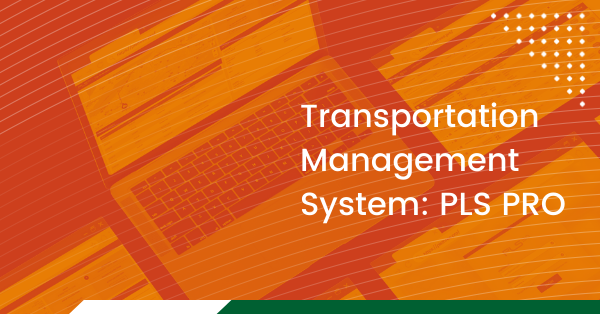While operating in a progressively complex logistics world, companies currently need all the help they can get to help them work smarter, easier, and more efficiently. In addition, customers are becoming increasingly demanding, and the need for improved supply chain visibility continues to pose a challenge for companies. As a result, technology like Transportation Management Systems is now more critical than ever. The transportation management system plays a crucial role in helping shippers overcome these challenges and thrive in the increasingly competitive logistics industry.
Define Transportation Management System
A transportation management system or “TMS” is a subset of supply chain management (SCM) that deals with the planning, execution, and optimization of the physical movements of goods. In simpler terms, it’s a logistics platform that enables users to manage and optimize the daily operations of their transportation fleets.
Distributors, manufacturers, retail businesses, and others that are constantly moving freight are aware that there are many moving parts to the shipping process. From quoting to delivery, shipping freight companies always look for new ways to optimize their spending and improve operations. A TMS does just that by helping shippers overcome daily challenges.
Who Uses a Transportation Management System?
A TMS is primarily used by businesses that need to ship, transport, and receive goods regularly, including:
- Manufacturers
- Distributors
- Trucking companies
- Ecommerce companies
- Retail chains and shippers
- Logistic service companies, such as third-party logistics (3PL) provider
The value of TMS for SCM
A TMS helps shippers move loads from point A to point B in the most cost-effective and rational ways possible. For example, hiccups can be avoided using TMS technology, such as empty return trailers or half-loaded containers, which analyze and identifies the best possible situations and automatically sends that information to dispatchers. As a result, traditional tools such as phone calls, paper, and fax machines have become virtually obsolete.
What Advantages Does a TMS provide?
Most users primarily rely on TMS software to lower their freight costs. However, there are many other benefits. For example, a TMS report and analytics program can identify if the lowest-cost carrier is delivering on time – all the time. If not, the shipper could be wasting time, money, and resources, which cancels any chance of any savings on rates. So, less employee time spent on transportation management translates to more time on other issues. Below are a few advantages that a TMS provides.
- Improved supply chain analytics
- Carrier selection is based on transit times, shipping costs, etc.
- Better warehouse efficiencies
- Decreased data entry errors – less wasted time fixing mistakes
- Combine it with a Warehouse Management System (WMS) to achieve more supply chain visibility
- Reduced inventory and greater confidence with customer tracking Enterprise
- Resource Planning (ERP) integration to minimize manual data input
How Can PLS PRO Help You?
By partnering with PLS, we give businesses proprietary to our TMS, PLS PRO. Our TMS software allows each business to customize it to fit its business plan. In addition, PLS PRO enables companies to optimize load tendering by cost and service levels. It highlights the carriers available and their origin and destination of the carrier terminal. PLS PRO provides accurate rates and includes contact and billing information. As a result, with our TMS, businesses can control, design, and fine-tune their transportation.
PLS PRO allows our users to increase their operational efficiency and customer service while saving time and money.
Operational efficiency
With our consistent and functional TMS, your company can significantly increase operational efficiency and utilize all available resources to optimize every shipment. PLS PRO allows your organization to easily find and book loads, giving you access to carriers, lanes, and required equipment to get the job done. This process also documents each shipment, giving you valuable insights into your team’s transportation process, costs, and success rate.
Overall, having a reliable transportation management system allows you to analyze spending, operational gaps, inventory, and much more. Using this information, your team can make data-driven decisions to improve cash flow and overall productivity.
Increase customer service
PLS PRO can also support customer service efforts by giving you more significant order fulfillment and control over the last steps of the delivery process. Last-mile delivery has become a priority as many organizations revamp their supply chains.
Save time & money
Naturally, improved operational efficiency, data-driven decisions, and enhanced customer service can result in significant cost savings. However, our TMS solutions can also drastically reduce the amount of manual labor and human error in the transportation department, letting go of all the risk and none of the reward.
PLS Logistics Services can help your company reach its full potential. With TMS solutions complementing our record of accomplishment as an effective 3PL provider, PLS can provide TMS solutions that will make your bottom line and customers smile. So let PLS be your next partner- check out our TMS solutions today!

